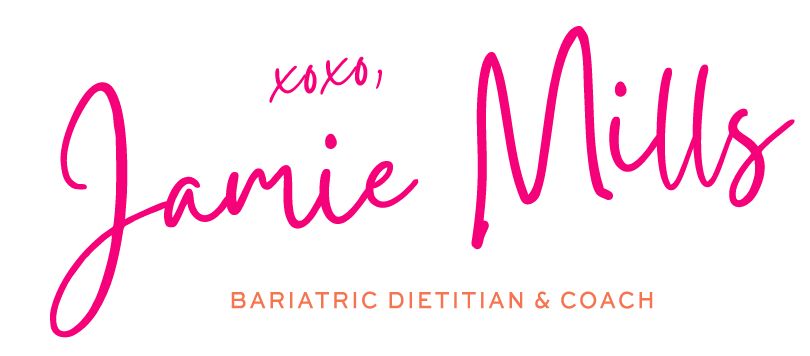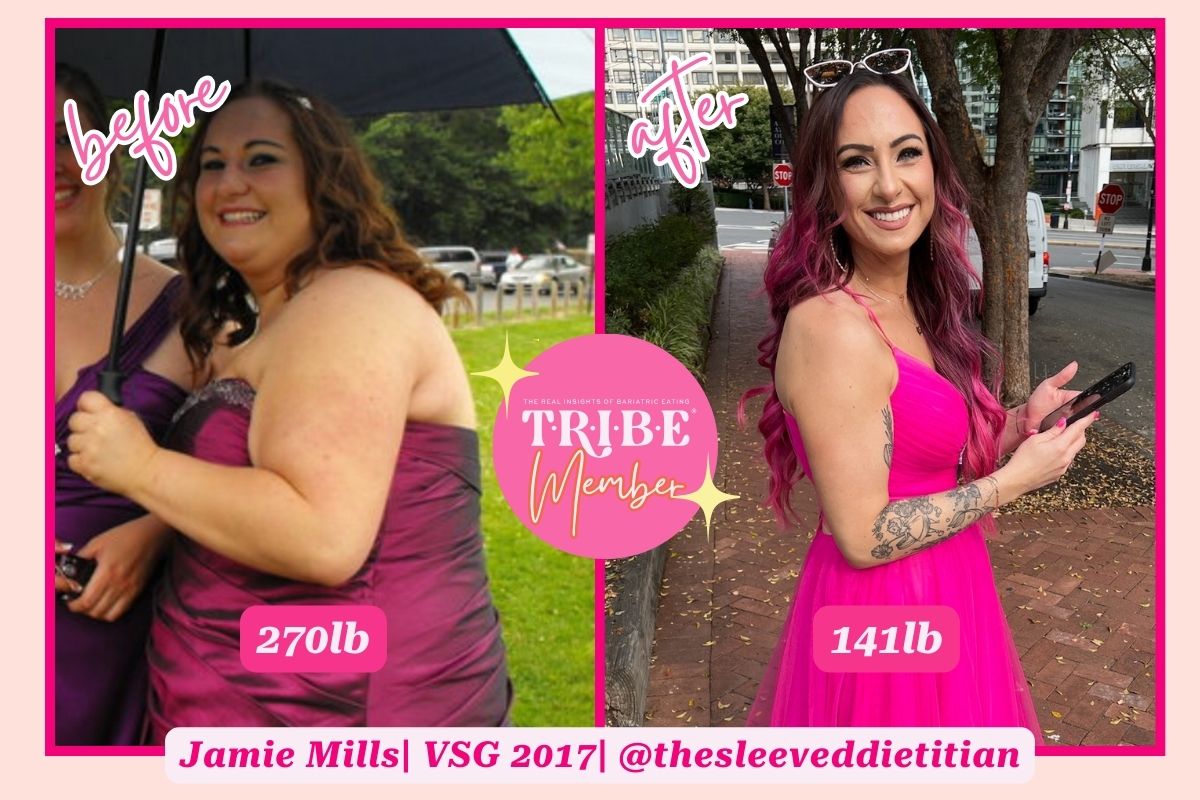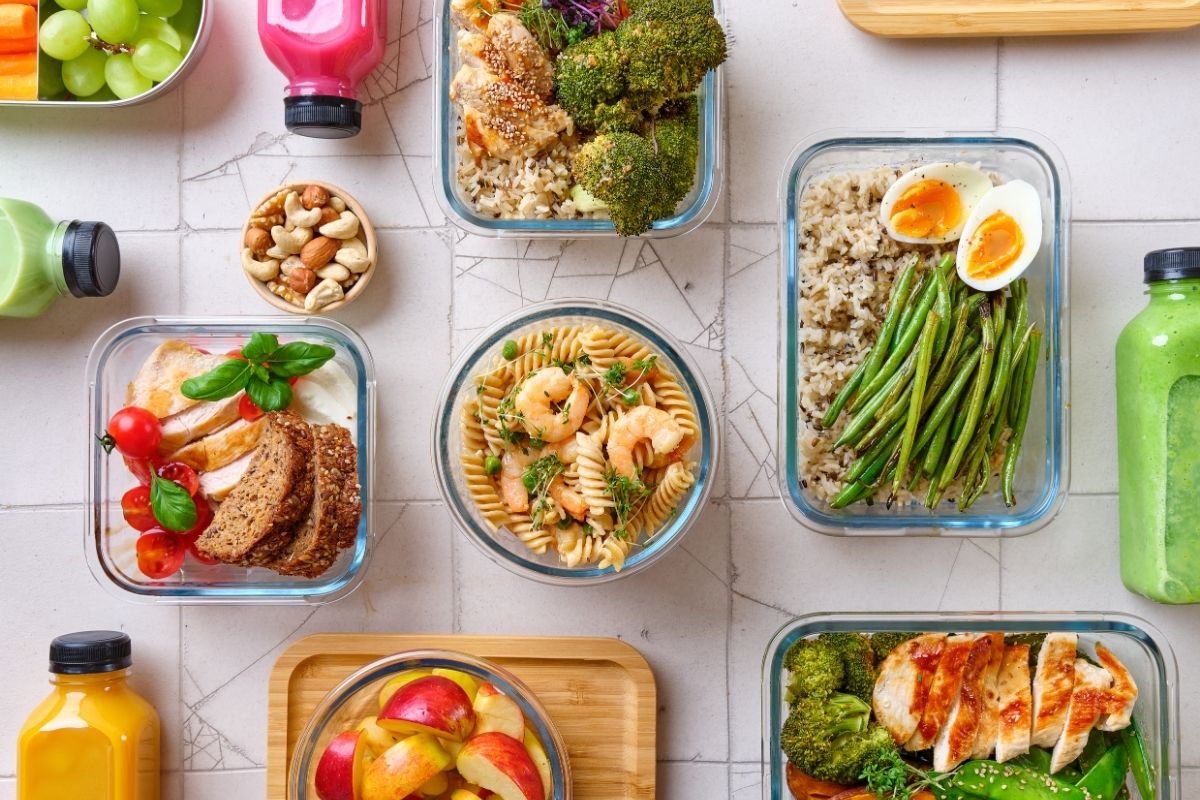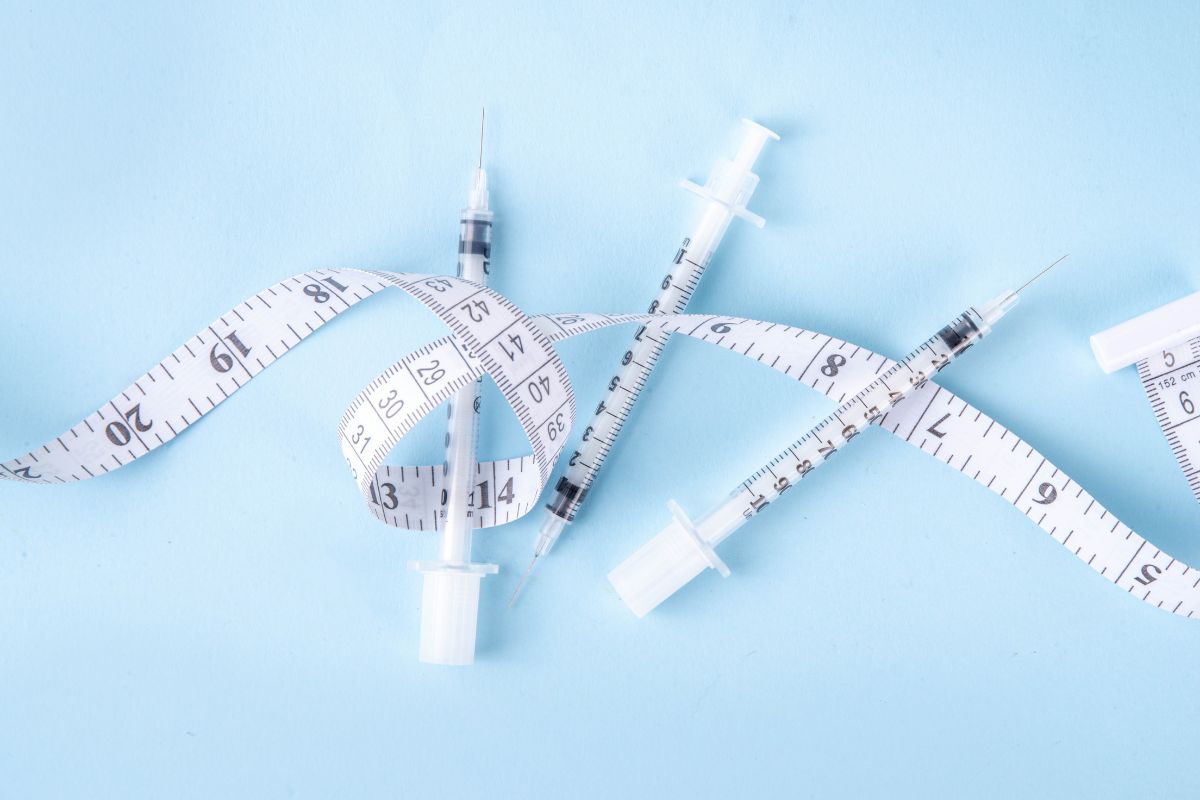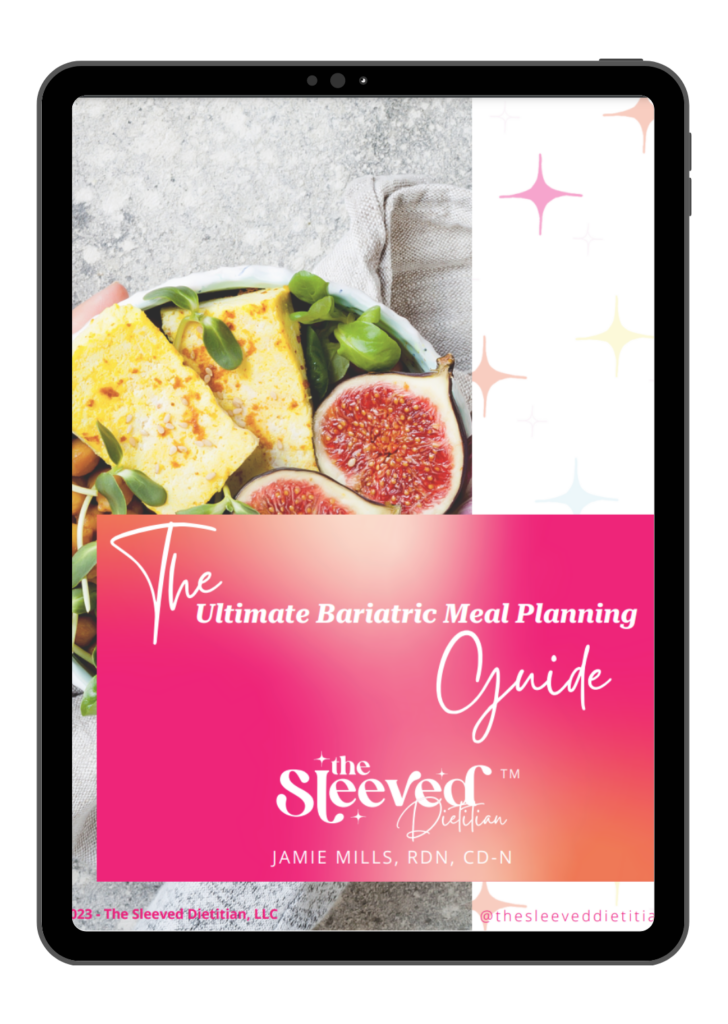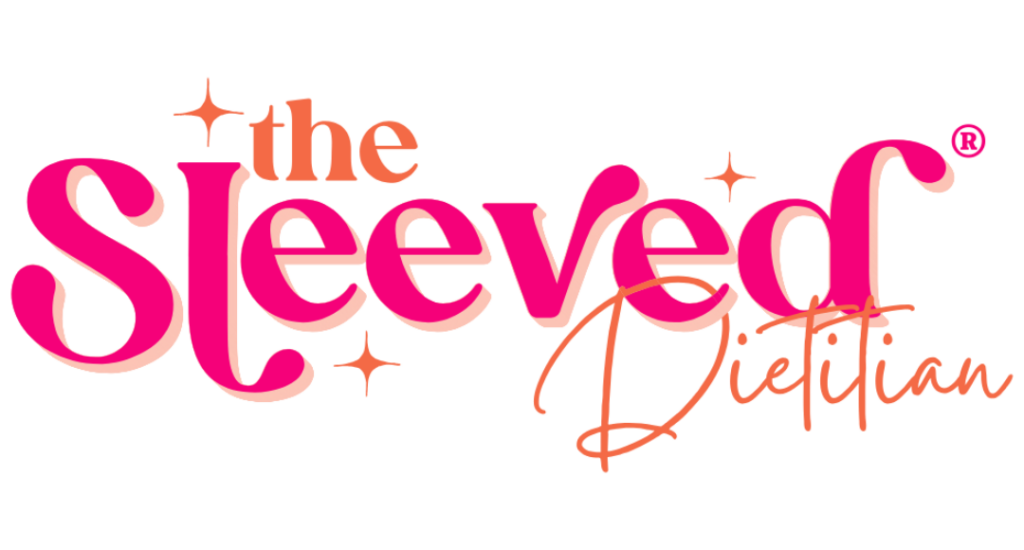Wondering “Why can’t we eat crackers after bariatric bypass surgery?”
If you’ve had gastric bypass (RNY) surgery, or any weight loss surgery, there’s a good chance that prior to surgery you were handed a binder or a packet with a generic diet plan. In that plan there’s probably a list of “never again” foods.
And on that list, it’s more than likely you’ve come across “CRACKERS” as a totally off limits option. If you’re thinking “Why in the world are crackers of all things off limits?” then you’ve come to the right place.
Hi, I’m Jamie! I’m a registered dietitian who specializes in bariatric surgery. The reason I’m so passionate about supporting bariatric patients is because I am one too! I had the vertical sleeve gastrectomy (VSG) in 2017. I lost 130+ lbs on my journey and now I help other people find success post op too!
I’m incredibly passionate about making sure that you as a bariatric patient understand the post op “rules” and why you’re being told what to or not to eat. It’s important that if you’re told you can’t eat something, that you understand the why behind being told that. Let’s dive in!
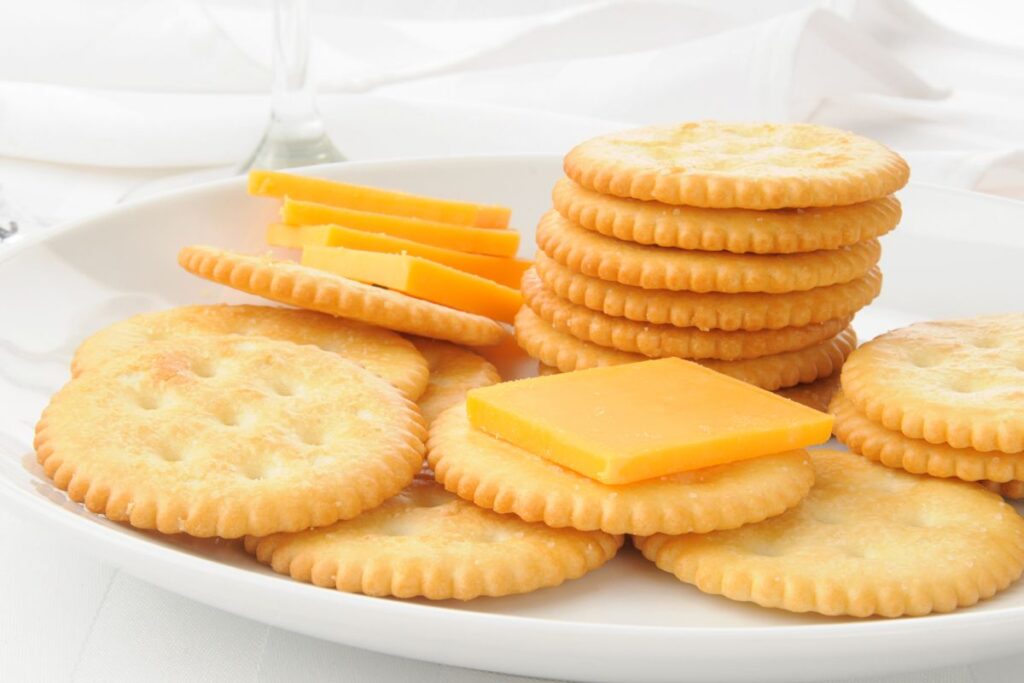
It’s not so much that you can’t eat them, it’s more you shouldn’t eat crackers after bariatric bypass…
One of the things that can be super frustrating is being told you “can’t” have something after weight loss surgery. Especially if you’ve never been told why. It can be really confusing.
And while it’s true, there are some foods that need to be entirely off limits, the majority of foods can absolutely be added back in. If you’re wondering what can you NEVER eat again after gastric bypass, read this blog.
When it comes to crackers after bariatric bypass surgery, it’s not so much that you can’t eat them, it’s more so that you shouldn’t. Unless crackers make you sick, you certainly can have them post op. But there are some nuances to that statement. Of course, always follow your surgeons guidelines and talk to them before modifying your post op diet instructions in any way.
Crackers, in and of themselves, are not bad nor are they going to make you gain weight. And they are very unlikely to harm you in any way. But the problem with crackers is that they are considered a slider food after weight loss surgery.
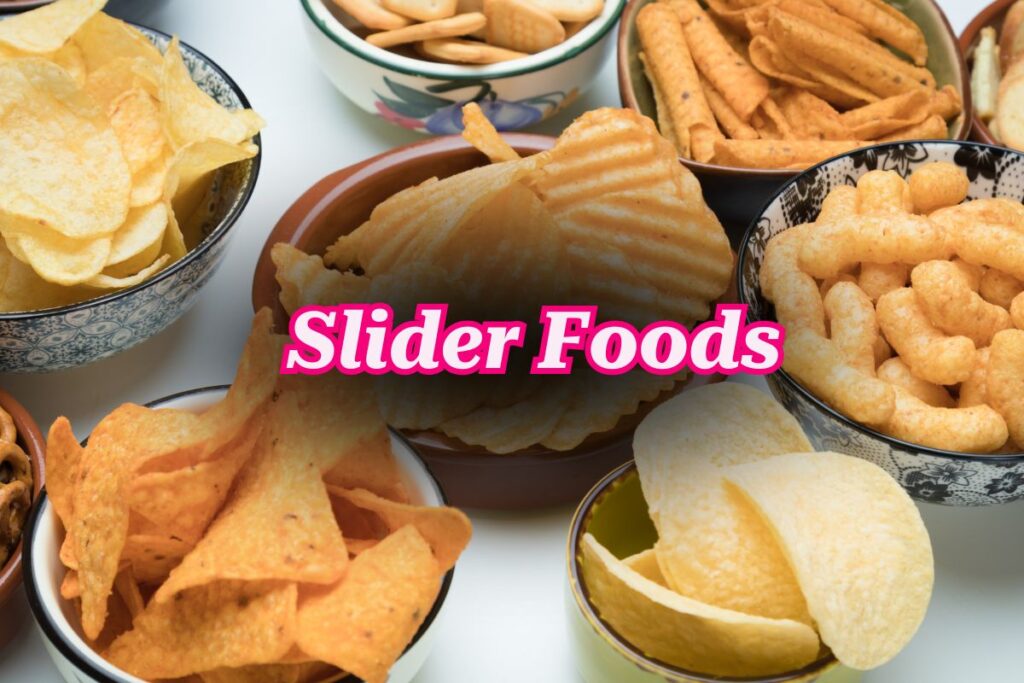
What are slider foods? And how does this relate to crackers after bariatric bypass?
A slider food is widely known and a common term amongst the bariatric community, and is used by both professionals and patients alike.
A slider food is a term that describes a food that doesn’t keep you full after weight loss surgery. Essentially, it’s a food that “slides” right through your stomach AKA your new pouch.
Slider foods more often than not tend to be simple carbohydrates. Simple carbohydrates are carbohydrate sources that are low in fiber and other nutrients and are more readily digested and converted to sugar in the body. (To learn more about carbohydrates after weight loss surgery, read this blog).
How our bodies react to slider foods
When you eat slider foods, and that food is quickly digested and converted to sugar, not only does it spike your blood sugar levels, but it typically leaves you hungry and wanting more. Not just because these foods aren’t dense enough to fill you up, but because that rise and fall in blood sugar can increase cravings and hunger.
What foods are considered slider foods?
Some other slider foods include: chips, cookies, pastries, pretzels, candy, etc. When you think of a slider food, associate that with “snacky” food.
I want to take a moment to emphasize that slider foods aren’t bad. Foods are not good or bad and we shouldn’t be placing moral value on them. Slider foods simply just aren’t going to keep you full for very long after surgery.
Slider foods are also the foods you are more likely going to be able to over eat. Because they don’t fill up your pouch, it’s easy to just keep eating them. Calories, and oftentimes sugars and fats, can add up quickly when eating these foods.
It also doesn’t mean you can’t ever eat them, it just means you have to be very mindful of how you are eating them after surgery.
Why are crackers considered a slider food after bariatric bypass surgery?
Crackers after bariatric bypass surgery are considered a slider food because of their nutrient profile. Let’s take the nutrition of a Ritz cracker for an example:
Nutrition Facts of Ritz Crackers:
- Serving size: 5 crackers
- Calories: 80 calories
- Fat: 4.5g
- Carbohydrates: 10g
- Fiber: 0g
- Sugars: 1g
- Protein: 1g
I want to emphasize that looking at the nutrition facts for a serving of Ritz crackers isn’t bad. Again, foods are not good or bad and we shouldn’t be placing moral value on them.
The take home point here is, that even though the calories are relatively low, nearly all of the nutrition is coming from fat and primarily carbohydrates. Even more importantly, there is no fiber included in the carbohydrate make up and the protein is very low.
Now, of course you could choose a higher fiber cracker option. But ultimately, most crackers are still not going to keep you very full for very long, and when eaten alone as a snack, can still be easily over-eaten.
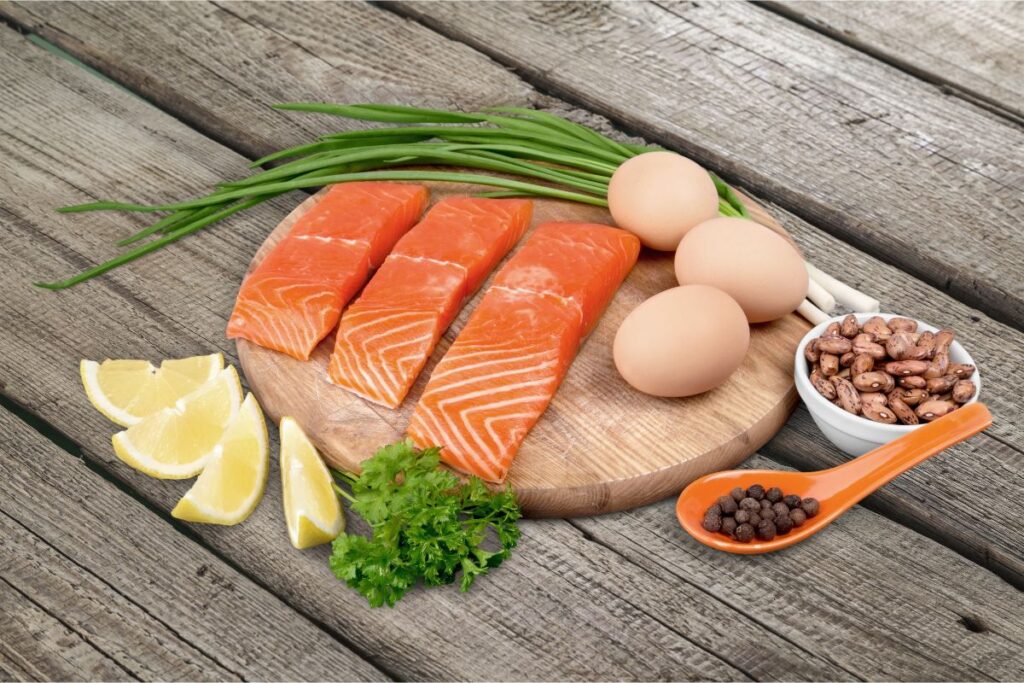
The importance of protein after bypass surgery
There’s a few reasons why protein is so important after weight loss surgery. It’s not that bariatric patients need more protein than those without surgery, but more so, it’s that since your portions are so limited, it’s essential you’re getting enough protein in.
Protein is an essential nutrient to avoid malnutrition and muscle wasting. Per the ASMBS (American Society for Metabolic and Bariatric Surgery) it’s recommended to get a minimum of 60g of protein per day. However, I find most of my clients do better with closer to 80-90g per day.
Protein is also going to fill you up so much more than refined carbohydrates will (like crackers after bariatric bypass surgery). Protein is very dense, and it sits heavier in your stomach after surgery. While this can be an odd feeling to get used to, it’s important to fill your stomach up with protein to make sure you’re using your new tool to its full potential.
And lastly, protein foods will help manage hunger and cravings even after you’ve eaten it. Protein has been found to increase satiety when eating because it slows down digestion, aids in managing blood sugar levels, and ultimately reduces cravings.
The Bariatric Breakthrough® Meal Plate Method
So we know that protein is essential after gastric bypass and other weight loss surgeries. And we also know that while slider foods and carbohydrates aren’t bad, they need to be eaten mindfully to avoid unintentionally over-eating them. So how do you apply this in real life?
I’ve worked with thousands of bariatric patients over the years and with each and every one of them I utilize the Bariatric Breakthrough® Meal Plate Method.
What is the Bariatric Breakthrough® Method?
My Bariatric Breakthrough® Method is my signature and trademarked approach to helping bariatric patients hit their nutrition and weight loss goals after surgery. Within that method is my meal plate approach.
Now, many dietitians use different variations of the meal plate method, so you may have seen this before, or something similar.
The meal plate method is how I help bariatric patients focus primarily on protein and fiber to hit those nutrition goals and make sure you’re staying full and satisfied and using their tool to their fullest potential.
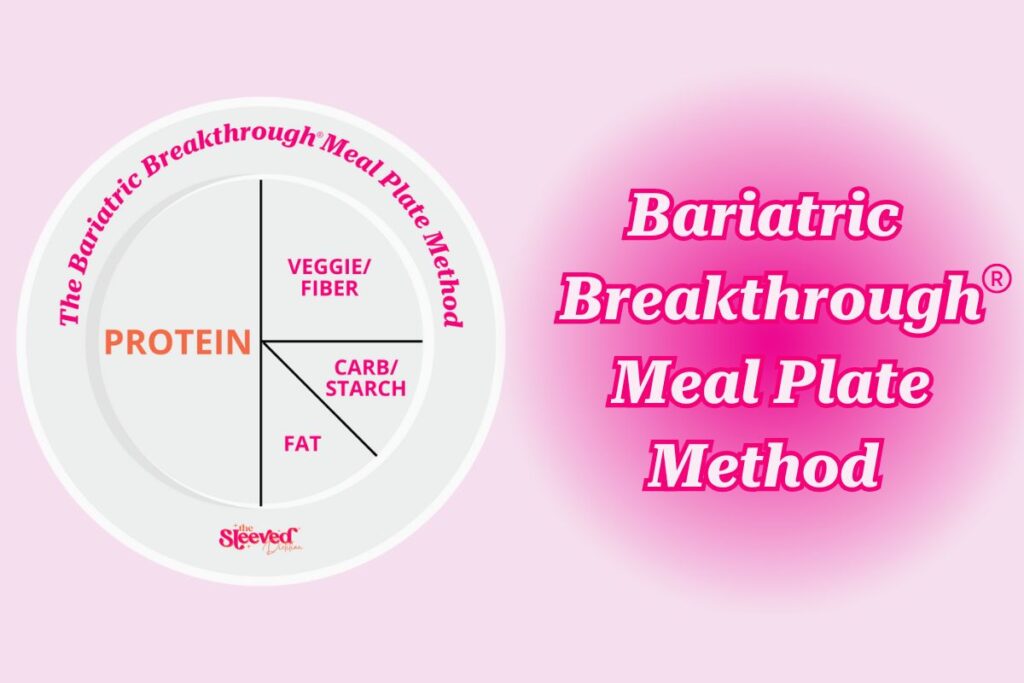
How does it work?
My Bariatric Breakthrough® Meal Plate Method is simple.
Using a small 6” appetizer plate you want to make:
- ½ your plate protein
- ¼ your plate fiber from non starchy veggies
- ¼ of your plate carbs and fat
This meal formula allows you to focus mostly on protein and veggies, which are important for hitting your nutrition goals and staying fuller and satisfied longer so you can hit your weight loss goals, while also allowing carbs and fats in moderation for satiety and sustainability.
It is however, important to note, that everyone’s post op diet instructions will look a little different. It’s important to follow your post op diet and talk to your surgeon or dietitian before changing or adding foods in.
It’s also important to note that it’s unrealistic to have a fully balanced plate right out the gate. It takes time to add foods back in and it’s not something that will happen overnight. So while it may take a while for you to be able to add more carbs into your diet, long term, they should be reincorporated in a realistic and sustainable way.
How to include crackers after bariatric bypass surgery in your post op life using this approach
So let’s say you’re at a place in your bariatric bypass journey where you are able to have an all foods fit approach. This typically happens around a year post op after protein needs are met and weight loss goals are mostly achieved.
I would encourage you to pair your crackers after bariatric bypass surgery with the other nutrients encouraged on the Bariatric Breakthrough® Meal Plate Method.
So this might look like making a snack plate, rather than just grabbing for the crackers. For me personally, I would probably create a snack plate that looks a little something like this:
Using a small 6” appetizer plate I would make:
- ½ my plate protein by using either turkey deli meat roll ups OR chicken salad
- ¼ my plate fiber from non starchy veggies by adding some sliced cucumber
- ¼ of my plate carbs and fat by adding a serving of 5 Ritz crackers and maybe some almonds
This is just an example, and it’s truly up to you what you choose to put on YOUR plate. But something like this could make an excellent and balanced snack that includes protein and fiber while still allowing you to have crackers in your routine.
Looking for more support?
I know it can be super overwhelming to figure out what you plates should look like after surgery and it can be really frustrating when you find yourself slipping into old habits, especially when it comes to snacky foods.
If you’re looking for more support with hitting your weight loss goals and want to better understand how to properly add slider foods, like crackers after bariatric bypass surgery, back into your routine without falling victim to the all or nothing mentality, I would love to invite you to join my Tackling Snacking Course! In this course I teach you how to incorporate snacks post op, just like I did with crackers after bariatric bypass surgery.
My Tackling Snacking Course is a 10-step self paced course that includes easy to follow video trainings from me where I walk you through in even more detail on how to add slider foods and carbs into your routine and how to overcome snacking.
This course is only $27 and is packed with so much support! CLICK HERE to get access!
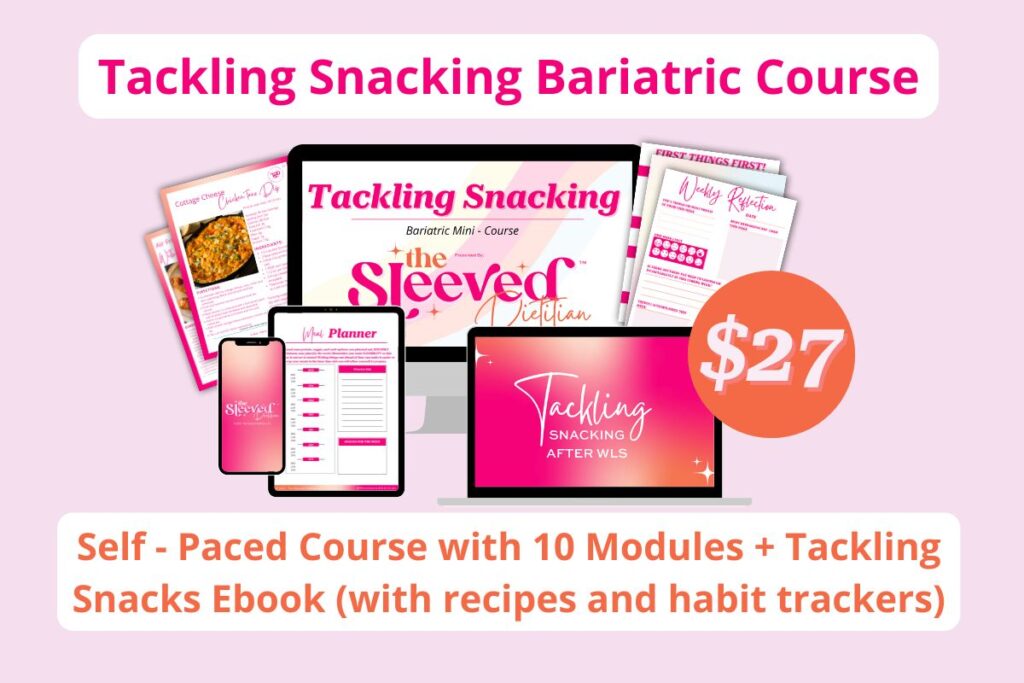
That’s all for now!
